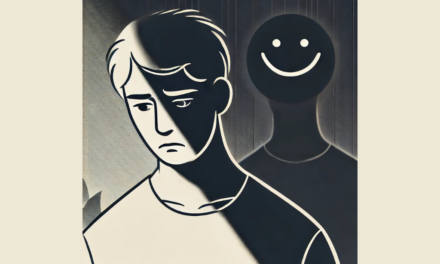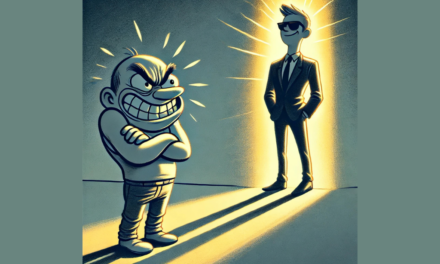As I was scrolling through Facebook this morning (Meta, if I’m being official), my eye was caught by a post. “Always pray. It’s the most powerful tool against worry, doubt and fear.” – was written on it. (Always pray. It is the most powerful tool against worry, doubt and fear. ) I would have shrugged it off as I usually do, but today it somehow made me think. Is prayer and supplication worth anything? What can they help us with? Some say they are nothing more than self-deception. My childhood reminds me of my father, who always made petty, contemptuous comments about prayer. I look at this post, 54 thousand likes, 8600 comments, over 16 thousand shares. So many people touched in a few hours. Many people think that prayer is nothing more than a psychological crutch, a last resort for those who cannot face reality. But if this is true, why do so many people share it? And why do we instinctively feel, in a difficult moment, the need to speak to “someone” or “something”?
Prayer and supplication – is there a difference?
Have you ever, in a tense moment, just said to yourself, “Please, just help me now!” or “God, just this one thing!”? If so, you’ve experienced the power of prayer – even if you’re not religious. Or in another situation, an athlete, at the crucial moment before the race, closes his eyes and whispers, “May I have the strength to go all the way!” It’s not a long, deep prayer – it’s a quick, spontaneous prayer that condenses hope and faith into a single thought.
The prayer is therefore a short, emotional prayer, often spontaneous. In contrast, prayer in a general sense can be a religious communication with the transcendent in any form and of any length. For example, an elderly woman sits in the same chair every evening and prays silently. She speaks at length to God, giving thanks for the day, expressing her concerns, and then making requests for her loved ones. It is a classic prayer – a regular, deep ritual of connection.
But what happens in the brain? How does it affect our emotions? And why do we turn to them even if we are not religious?
Why do people turn to a higher power?
Since time immemorial, people have sought forces that are greater than themselves. But why? Why do we sometimes feel we need someone – or something – to turn to? Let’s look at four possible explanations.
1. The search for morality and order
The young child who first hears “Don’t lie, it’s wrong” doesn’t understand and asks “Why?”, and the answer often comes back to some moral rule or religious teaching. For example, “Because lying is wrong.” Or “Because good people don’t lie.” In our society, a higher moral order often serves as the basis for principles such as goodness, justice or honesty. For Kant, morality presupposes the presence of a higher being because it can provide the ultimate moral justification.
2. The search for the meaning of existence
There is a moment when you stop in the middle of your life and ask, “Is that it?”
- My job is the same every day.
- My relationships are superficial.
- I don’t feel that it matters what I do.
And you start to look for something beyond the everyday, and you start a spiritual quest. For if there is a higher power or a greater plan, then perhaps individual life has meaning. And many people find answers to the question “Why am I here?” in a religious or philosophical framework that helps them find inner peace.
3. Spiritual support and coping
Suppose you are in the shadow of a serious illness. You feel helpless.
What are you doing?
Many people pray at this time because they feel it helps them to cope. Even if you are not sure that there is a higher power, prayer can calm you, reduce your anxiety and give you hope.
One of the most popular theories is that people turn to a higher power because it gives them a sense of security. In situations of uncertainty and lack of control, they often need a source of hope and comfort. Prayer and supplication in such situations help to reassure and empower, as they feel they are not alone in their problems. Research has shown that religious people often cope better with difficulties because prayer or faith reduces stress and increases mental resilience.
4. Cultural approach – Tradition or internal need?
If a child is born into a religious family, he or she is likely to learn the ritual of prayer from a very early age. Blessings at the table, evening prayers or church services can be as natural a part of his life as a good night kiss.
The practice of religion and prayer is deeply rooted in many cultures and passed down from generation to generation. It can be not only an individual choice but also a community tradition that fosters a sense of belonging.
- A Muslim prays five times a day because it is part of his faith.
- An old woman prays every night because she learned it from her mother.
- A Buddhist monk meditates because he seeks an inner peace similar to prayer.
Cultural heritage is not just about copying customs. Traditions can provide a sense of stability when faced with the big questions of life. Prayer is therefore not always an individual choice, but can also be a learned pattern of behaviour that plays a role in the search for meaning in life.
What does our brain do when we pray or pray?
Neurotheology, also known as the neuroscience of religion, combines the principles of psychology and theology to explore the relationship between the brain and religious and spiritual experiences. They investigate how spiritual practices such as prayer, meditation, spiritual rituals change the functioning and structure of the brain, which areas of the brain are activated or deactivated, and how thoughts and prayers affect the body (e.g. the immune system).
Research has shown that meditation and prayer induce a similar state of consciousness, as both enhance concentration and inner dialogue . Studies using neuroimaging techniques such as fMRI have shown that different types of prayer activate different brain regions. A brief, spontaneous prayer can provide sudden calm by stimulating the limbic system responsible for processing emotions, particularly the amygdala , while a longer, more in-depth prayer tends to engage the prefrontal cortex for self-reflection and decision-making, promoting stability and inner harmony.
When we pray, our brain is actually working like a musician: the emotional centre (limbic system) provides the melody andour rational self(prefrontal cortex) creates the harmony. The end result? A mental state that helps you better manage stress and challenges.
Prayer therefore activates several brain regions involved in emotion regulation, self-reflection and cognition of social relationships. Different types of prayer activate different neural circuits.
- Spontaneous prayers (e.g. “Please make this work!”) activate the limbic system, especially the amygdala, which processes emotions such as fear and hope.
- Structured or meditative prayers (e.g. repetitive prayer texts) engage the prefrontal cortex, which is responsible for self-control and deep thinking, and the anterior cingulate cortex, which helps regulate focus and emotional processing.
- Prayers for others or prayers based on gratitude stimulate the empathy centre in the brain and can therefore help us to better understand others’ feelings and understand their point of view. These are also the parts of the brain that become more active when you are trying to tune in to a friend’s feelings, for example, or thinking about what another person might be going through.
It has been scientifically shown that praying also increases levels of oxytocin and endorphins, which can help reduce stress and feelings of happiness. However, the exact mechanisms and long-term effects depend on individual beliefs and prayer practices.
Why does it work even if you don’t believe in it?
Prayer is effective not necessarily because there is a higher power, but because of how the human mind responds to it. A prayer can calm us, help us cope with stress and even make us more focused and empathetic.
Prayer may not be a miracle, it may be biology.
But if something reduces your fears, increases your hope and helps you become more human – then, after all, what’s the difference? 😊









